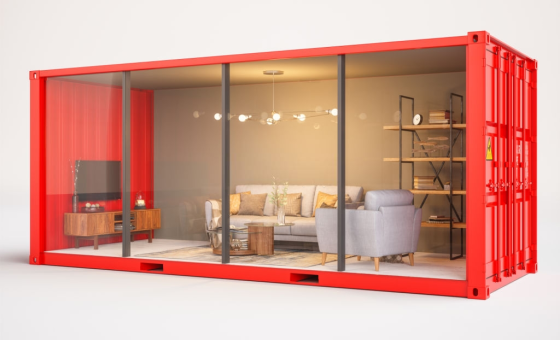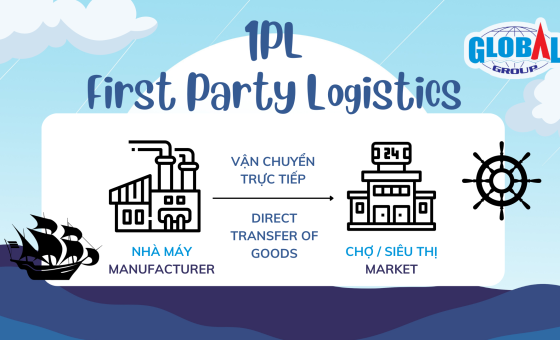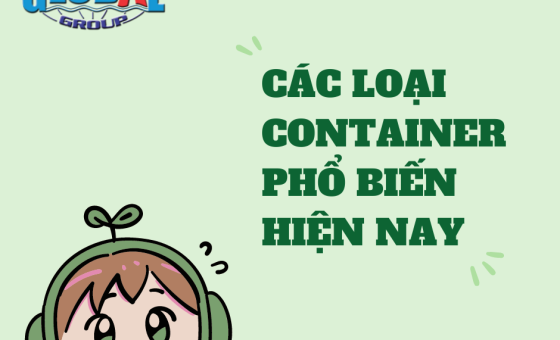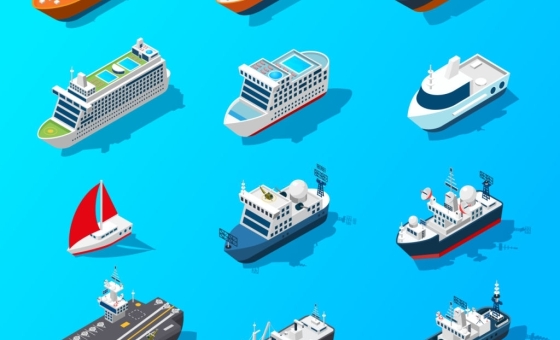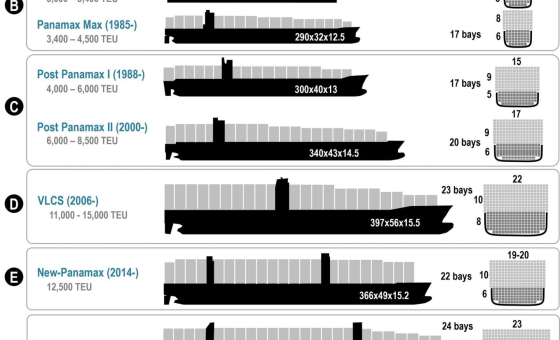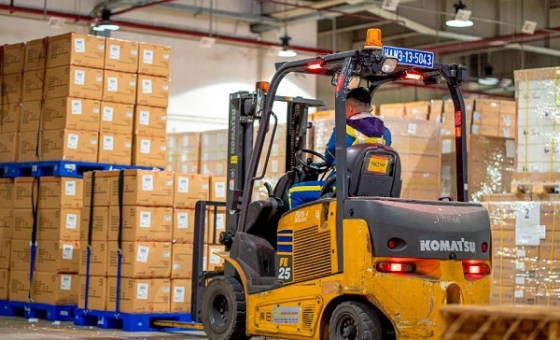incoterms-2020
28/11/2019 - 03:11:01 PM |
3138
The Incoterms® rules are the world’s essential terms of trade for the sale of goods. Whether you are filing a purchase order, packaging and labelling a shipment for freight transport, or preparing a certificate of origin at a port, the Incoterms® rules are there to guide you. The Incoterms® rules provide specific guidance to individuals participating in the import and export of global trade on a daily basis.
As ICC celebrates its Centenary in 2019, the world business organization is pleased to announce the publication of Incoterms® 2020. The newest edition of the Incoterms® rules will help prepare business for the next century of global trade.
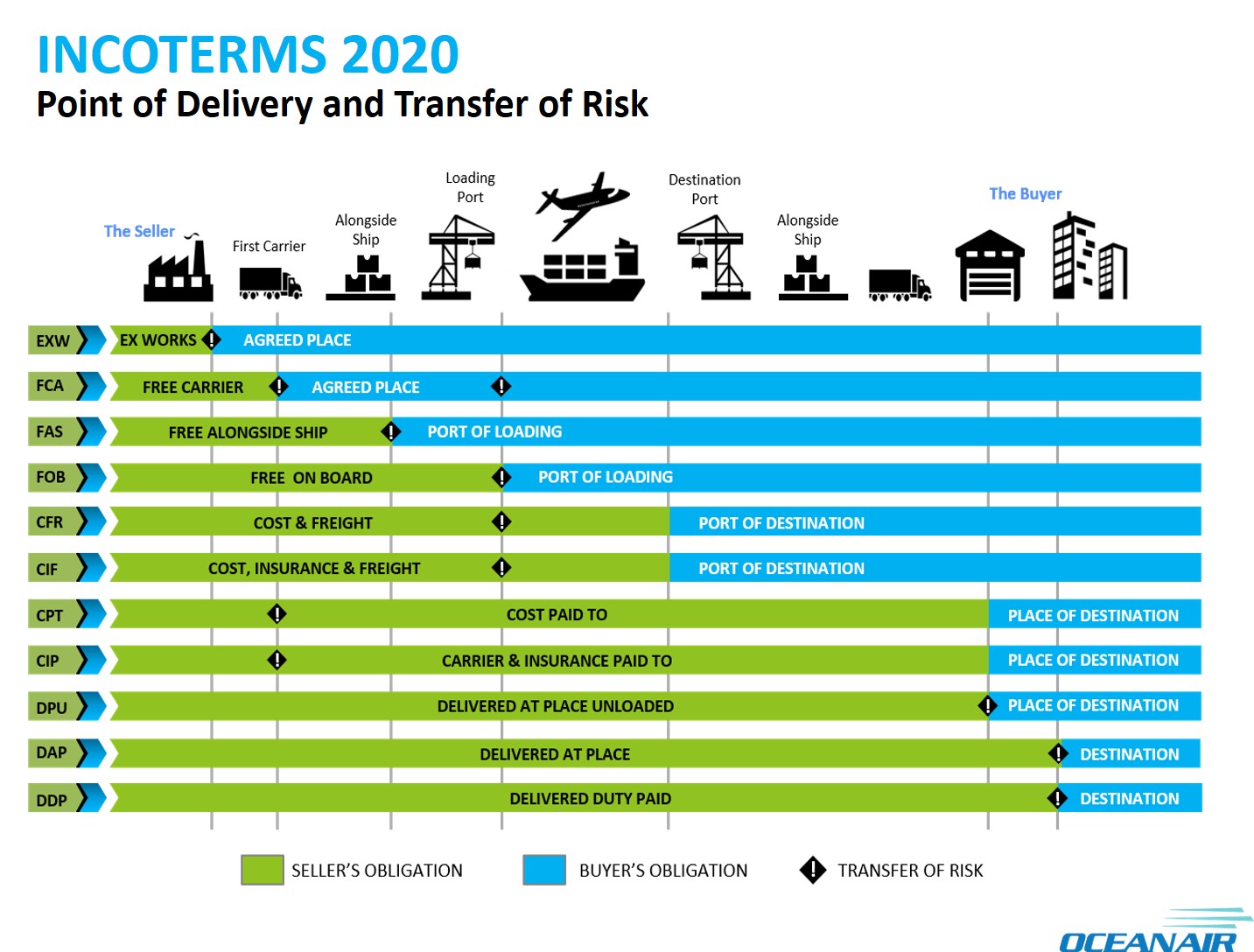
Incoterms® 2020: The Rundown of All 11 Terms
7 for any mode of transport
- ExWorks (EXW)
Seller delivers by making goods available to buyer. - Free Carrier (FCA)
Seller delivers goods to carrier or buyer-appointed agent. - Carriage Paid To (CPT)
Seller delivers goods to carrier or buyer-appointed agent and pays for international carriage. - Carriage & Insurance Paid To (CIP)
Seller delivers goods to carrier or buyer-appointed agent and pays for international carriage and insurance. - Delivered at Place Unloaded (DPU)
New to 2020, formerly called Delivered at Terminal (DAT). Seller delivers by making goods available to buyer by unloading goods at a named place. - Delivered at Place (DAP)
Seller delivers by making goods available to buyer at a named place. - Delivered Duty Paid (DDP)
Seller delivers by placing goods at buyer’s disposal, cleared for import with duties paid and ready for unloading at named place.
4 for ocean and inland waterway transport
- Free Alongside Ship (FAS)
Seller delivers by placing goods alongside a vessel nominated by buyer. - Free on Board (FOB)
Seller delivers when goods are on board a vessel nominated by buyer. - Cost & Freight (CFR)
Seller pays for costs and freight to named destination and delivers when goods are on board a vessel nominated by buyer. - Cost, Insurance & Freight (CIF)
Seller pays for costs, freight, and insurance to named destination and delivers when goods are on board a vessel nominated by buyer. -
-
Incoterms® 2020 provide for five main changes:
- DAT is now DPU. The term Deliver at Terminal (DAT) is now Delivered at Place Unloaded (DPU) to reflect the modern need for flexibility and efficiency in an unloading place.
- FCA closes a gap. Now, Free Carrier (FCA) makes it easier for sellers to obtain payment from a buyer’s bank. Sellers are often required to present to banks a bill of lading with an on-board notation, indicating delivery of goods. But carriers frequently refuse to issue the notated bills of lading to the seller if they receive the goods from an intermediary transport — like a truck — instead of directly from the seller. The new term provides that buyers can instruct carriers to issue bills of lading with on-board notations.
- CIP increases insurance. The Carriage and Insurance Paid To (CIP) term now requires insurance coverage provided by Clauses (A) of the Institute Cargo Clauses (LMA/IUA). There is no change to Cost Insurance and Freight (CIF), the only other term to require the seller to provide insurance.
- Sellers can DIY transportation. Terms now state that a seller can arrange carriage as necessary. The update allows for a broader range of solutions than the traditional hiring of a third-party carrier, recognizing that many sellers now use their own methods, including trucks or planes, to deliver goods.
- Security increases for all. Import and export security requirements have increased exponentially since Incoterms® 2010. The 2020 edition expresses specific, new security responsibilities related to goods, cash, and documents under individual trade terms.


